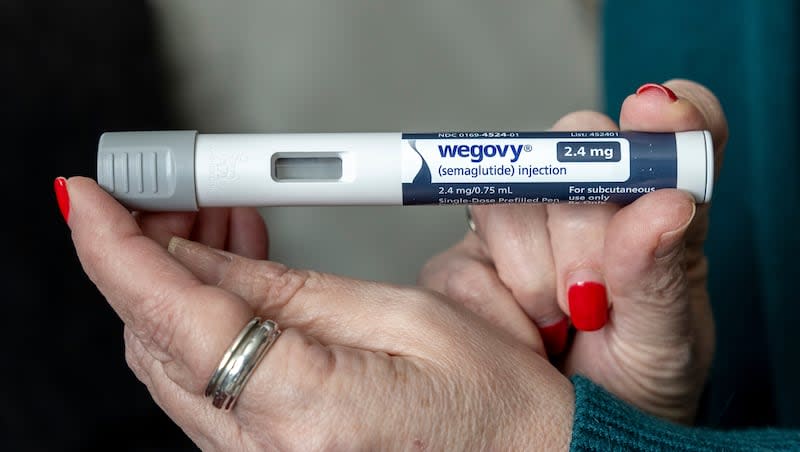Patients who took Wegovy usually kept significant weight off

The latest analysis of the weight loss drug Wegovy suggests the drug not only helps people lose weight and keep it off, but that the drug has heart-protective qualities, as well.
“Patients taking Novo Nordisk’s Wegovy obesity treatment maintained an average of 10% weight loss after four years, potentially boosting the drugmaker’s case to insurers and governments to cover the cost of the effective but expensive drug,” according to a Reuters report.
The data was presented Tuesday at the European Congress on Obesity in Italy.
As CNN reported, “The analysis — of a trial called SELECT, whose results showed last year that Wegovy significantly reduced heart risk in addition to helping with weight loss — also suggest that the drug may protect the heart in ways beyond weight loss alone, researchers said, raising new questions about how the wildly popular medicines in this drug class should be used — and covered by insurers.”
The SELECT clinical trial included more than 17,000 patients. Per the article, “The researchers, led by Dr. Donna Ryan of Pennington Biomedical Research Center in Baton Rouge, Louisiana, noted that the trend showed that participants on the medication typically lost weight for about 65 weeks, or a year and three months, before reaching a plateau.”
Decreased cardiovascular risk
An analysis of clinical trial data last year found that Wegovy reduces heart attack, stroke and other heart-related risks by 20% in those who already have heart-disease risk because of their weight. The new analysis of the data, published in the journal Nature Medicine, said that in patients treated with semaglutide, the lab-created hormone that is the active ingredient in Wegovy, weight loss was sustained over four years and the drug was associated with fewer adverse events, including stroke.
A study by the University of California Irvine published in Cardiovascular Drugs and Therapy last summer estimated as many as 93 million U.S. adults could benefit from the drug. The researchers said as many as 1.5 million heart attacks and strokes might be prevented over a decade and that the medication could lead to 43 million fewer obese people.
Wegovy and Ozempic, which is designed to treat Type 2 diabetes, have been called “weight-loss miracles,” as Deseret News reported a year ago. The two drugs use different doses of semaglutide, which is a glucagon-like peptide-1 (GLP-1) that mimics a satiety hormone, so people stop eating sooner because they feel like they’re full.
Per the article, “Wegovy is approved by the U.S. Food and Drug Administration for chronic weight management in those who are considerably overweight who have related medical conditions like high blood pressure or high cholesterol. Ozempic is prescribed to manage type 2 diabetes — the weight loss side effect a happy-accident discovery.”
Despite its high list price in the U.S. — $1,349 for a month’s supply — Novo Nordisk CEO Lars Fruergaard Jorgensen told CNN earlier this month that the company has been increasing the supply of Wegovy, which has been in short supply. CNN reported that demand has shot up, “with at least 25,000 people now starting to take the medicine each week in the United States.”
A survey by KFF (formerly Kaiser Family Foundation) found that around 1 in 8 U.S. adults now take a GLP-1 agonist drug. Half that many say they are currently taking the drug. “Most adults who have taken GLP-1 drugs say they took them to treat a chronic condition including diabetes or heart disease (62%), while about 4 in 10 say they took them primarily to lose weight,” the survey found.
The survey report noted about half of those using the medication found it difficult to afford.
Other indications?
Novo Nordisk also announced that it will test Wegovy and other GLP-1 drugs to see if they can help with alcohol-linked liver disease and if it could change how much people drink. Per Stat News, “This appears to be the first time the company is getting involved in research to see if the booming class of GLP-1 diabetes and obesity drugs can affect substance consumption, a question that academic researchers have been probing but the pharmaceutical industry has so far avoided.”
That study will look for the impact in terms of liver scarring and also changes in alcohol consumption, the article said.

